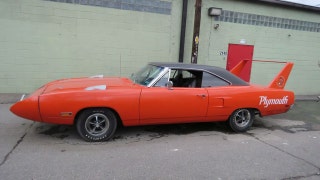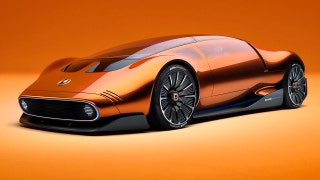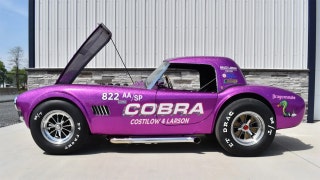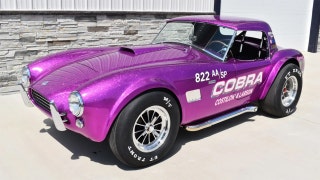There’s a new spin on the rotary engine.
Liquid Piston, a Connecticut-based engineering firm, has turned the classic Wankel engine design inside out to create a more efficient, and cleaner-burning motor.
The X Mini is a little powerhouse with a core that weighs just four pounds, is compact enough to fit inside a large cantaloupe, and pumps out 3.5 horsepower at 10,000 rpm. It’s envisioned as an alternative to a 50cc piston engines, but in a smaller, lighter package.
The Liquid Piston engine features a unique design that combines a roughly triangular housing, which looks something like a Venn diagram comprised of three circles, and an oval rotor. It’s basically the opposite of a Wankel layout, but Liquid Piston’s rotor also has combustion chambers built inside of it at each end. The only two moving parts are the rotor and output shaft, with intake and exhaust taking place through ports in the sides of the housing that are opened and closed by the movement of the rotor, with no valves necessary.
Company founder Alexander Shkolnik says his design allows for a different thermodynamic cycle than most internal combustion engines, and has the effect of maintaining the compression for longer than normal during combustion, then provides for overexpansion of the gasses to extract more energy out of the process.
LiquidPiston - Combustion in LiquidPiston X Mini 70 cc Gasoline Engine from LiquidPiston on Vimeo.
While a Wankel has one combustion event per revolution, the Mini X has three. It also uses fixed seals installed in the housing, rather than installed on the rotor, so oil doesn’t need to be injected into the fuel mixture for lubrication. This is one of the major drawbacks of the Wankel design as it leads to poor emissions performance and a high level of oil consumption.
According to Shkolnik, the engine is so smooth and quiet, it doesn’t require a muffler, and can be modified to burn just about any fuel, including diesel. The prototype is air-cooled and carbureted, but liquid cooling, direct fuel injection, supercharging and just about any technology used on an internal combustion engine can be applied.
The X Mini is based on a larger engine that was scaled down to 70cc after industry feedback suggested a growing demand for small motors for use in scooters, lawn and garden equipment, generators, drones and even as a range-extenders for battery-powered cars. The goal is to trim it to three pounds while increasing output to 5 hp at a blistering 15,000 rpm.
Liquid Piston hasn’t landed a customer to license its innovative engine just yet, but Shkolnik is confident it could be in production within two to three years once an order is placed. If you have any ideas for possible applications it hasn’t thought of yet, the company is planning a contest for submissions next year.






































